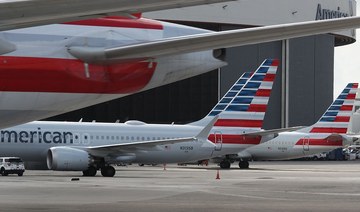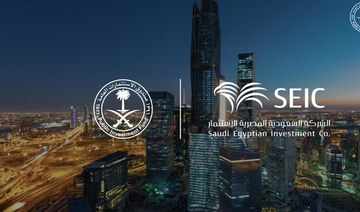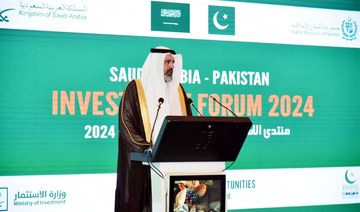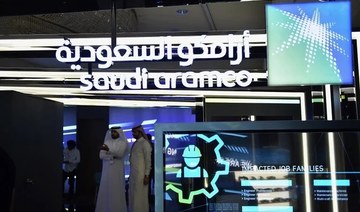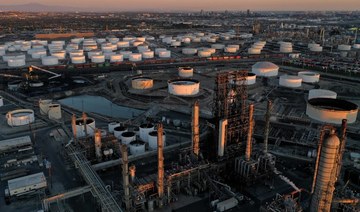PARIS: The United States and Europe are expected to announce a five-year suspension of tariffs in their 17-year-old dispute over aircraft subsidies on Tuesday, allowing them to focus on the threat posed by China’s nascent commercial aircraft industry, people familiar with the matter said.
A deal to pause the world’s largest corporate trade dispute would help US planemaker Boeing and Europe’s Airbus , while granting relief to dozens of other industries affected by tit-for-tat tariffs that were suspended in March. They face a renewed trade war within weeks if there is no progress.
US Trade Representative Katherine Tai discussed the dispute in her first face-to-face meeting with EU counterpart Valdis Dombrovskis on Monday ahead of Tuesday’s US-EU summit, where China will also be a key topic. Tai travels to Britain on Wednesday.
The European Commission, which oversees EU trade policy, and the United States had vowed to find a solution by July 11 when the currently suspended transatlantic tariffs are due to resume.
Officials had targeted a permanent solution through a pair of treaties — one between the United States and European Union, the original parties, and another between Washington and London following Britain’s exit from the EU — on new ground rules for aerospace.
But reaching a detailed accord has proven complex, given nearly two decades of legal wrangling and thousands of pages of documents, said one source briefed on the talks.
A standstill agreement would push back the resumption of tariffs by years at a time when US President Joe Biden has vowed to reset relations with European partners after four tumultuous years under former President Donald Trump.
Freezing the conflict over jet subsides, some of which have been rescinded or wound down, would give both sides more time to focus on broader agendas such as concerns over China’s state-driven economic model, several of the sources said.
The tariffs on $11.5 billion of goods were progressively imposed from 2019 after the United States and EU both won partial victories at the World Trade Organization over claims of unfair aid for Boeing and Airbus.
The dispute has dragged on since 2004 when the United States withdrew from a 1992 aircraft subsidy pact and took the EU to the WTO, claiming Airbus had managed to equal Boeing’s share of the jet market thanks in part to subsidized government loans.
The EU counter-sued over what it termed unfair R&D support and subsidized tax incentives for Boeing.
In recent months, top European, British and US officials have engaged in intense discussions to settle the dispute and focus on other challenges, including China.
Tai told Reuters in May she was optimistic about reaching a deal with Brussels, adding that the two sides needed to look at “the bigger question” of China’s ambitions to become a global player in the commercial aircraft industry.
The US has floated a joint review of aerospace funding in non-market economies like China, two of the people said.
One of the sources said the two sides had agreed to increase information-sharing, but gave no further details.
“There’s no question that the rise of China’s aircraft industry is ... on everybody’s proverbial radar,” US Chamber of Commerce Senior Vice President Marjorie Chorlins told reporters on Monday, noting what she described as China’s “heavy subsidization” of its industries.
She said settling the dispute would provide “a tremendous boost of goodwill” for broader US-European ties.
Brussels and Washington remain at odds over steel and aluminum tariffs, but are expected at Tuesday’s summit to set a Dec. 1 deadline to end punitive tariffs related to the dispute, according to a draft communique seen by Reuters.
Like the United States, the EU has sparred with Beijing on trade and security this year. But its 27 nations could struggle to agree a common front on topics like aerospace.
In April, for example, Hungary blocked an EU statement criticizing China’s new Hong Kong security law, sparking a row over the right of member states to veto EU foreign policy.
The Chinese embassy in Washington had no immediate comment.
None of the parties agreed to comment on the talks.
In a potentially key breakthrough, the United States had watered down opposition to the principle of future public loans for Airbus and removed its demand for compensation.
But its insistence on advance notice of any future public loans had triggered concerns among EU officials, who rejected giving Washington any veto power, people familiar with the talks said.
Even more critical is the benchmark to be used when deciding whether the interest on any future loans is market-compatible.
Under the 1992 subsidy pact, one third of a project could be financed by direct government support such as loans and cleared indirect R&D support up to 4 percent of a company’s revenue.
One option is to revisit that framework with market rules replacing subsidy quotas and a new cap on indirect R&D support.
Brexit has also complicated negotiations.
Britain and the United States came close to striking an aerospace agreement in December that could have forced the hand of Brussels in its own talks with Washington.
Britain’s ability to negotiate trade deals independently of the EU is central to its new “global Britain” stance. But its flexibility on Airbus is cramped by its role as one of four core nations involved in the planemaker, pre-dating its EU accession.
Airbus, which has 14,000 staff in Britain, has made plain work could shift abroad if the UK turns its back on aerospace.
After 17 years, truce nears in US-Europe jet subsidy war
https://arab.news/zpq5y
After 17 years, truce nears in US-Europe jet subsidy war
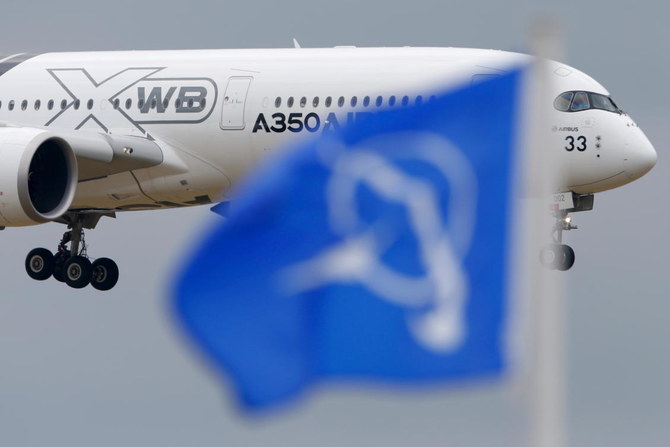
- A deal to pause the world’s largest corporate trade dispute would help US planemaker Boeing and Europe’s Airbus , while granting relief to dozens of other industries affected by tit-for-tat tariffs that were suspended in March
PIF’s Egyptian investment arm set to acquire shares in education-focused Social Impact Capital

RIYADH: Egypt’s Social Impact Capital is set to receive a significant financial boost as it announced a conditional agreement with the Saudi Egyptian Investment Co.
Under the terms of the deal, SEIC will subscribe for new shares in SIC, the principal shareholder of CIRA Education, which is listed on the Egyptian Stock Exchange.
This financial arrangement is designed to facilitate SIC’s acquisition of additional shares in CIRA, potentially increasing SIC’s total shareholding to between 75 percent and 100 percent at a price of 14 Egyptian pounds ($0.29) per share.
This move aims to delist CIRA from the Egyptian exchange and transform it into a major regional player in the education sector.
SEIC, wholly owned by the Saudi Public Investment Fund, will play a crucial role in enhancing CIRA’s market position. As one of the largest fully integrated education service providers in Egypt’s private sector, CIRA stands to benefit significantly from this partnership.
The completion of this conditional agreement is contingent upon successful due diligence, securing applicable regulatory approvals, and the execution of definitive agreements.
Following these steps, the SIC-SEIC consortium plans to extend a mandatory tender offer to CIRA’s other shareholders on the Egyptian stock exchange in line with existing laws and regulations.
CIRA’s initial public offering was in 2018 at a market value of 1.2 billion Egyptian pounds.
According to several reports, the company’s IPO saw selling shareholders SIC alongside other minority reserve holders offer of 207.26 million shares, or 37.8 percent of CIRA, to institutional and retail investors at a price of 6 Egyptian pounds per share.
Moreover, SEIC has been a major investor in Egyptian companies.
In 2023, the investment entity acquired a 25.01 percent stake in state-owned fintech giant e-Finance.
This comes as SEIC acquired an initial 25 percent stake in the fintech company in 2022, making it e-Finance’s largest shareholder.
Also in 2022, SEIC acquired minority stakes in three other Egyptian state-owned companies with a total investment of $1.3 billion.
The three other companies are Abu Qir Fertilisers and Chemical Industries, Misr Fertilisers Production Co., and Alexandria Container and Cargo Handling.
Pakistan ‘high priority’ economic opportunity for us, Saudi top minister says in Islamabad
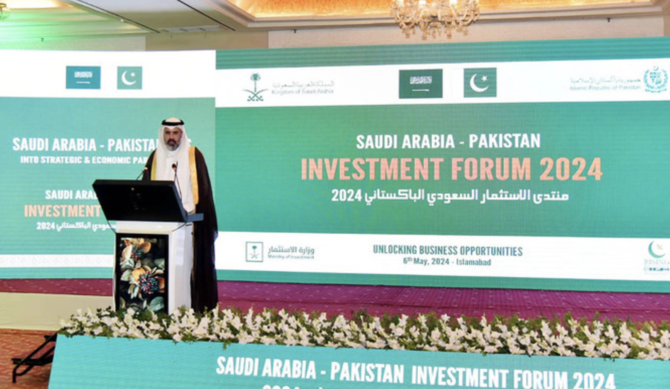
ISLAMABAD: Pakistan is a “high-priority economic investment and business opportunity” for Saudi Arabia, the Kingdom’s Assistant Minister of Investment Ibrahim Al-Mubarak said on Monday, as a two-day Pak-Saudi investment conference kicked off in Islamabad with a focus on business-to-business engagements.
A 50-member delegation led by Al-Mubarak arrived in Pakistan on Sunday, comprising some 30 Saudi companies from the fields of IT, telecoms, energy, aviation, construction, mining exploration, agriculture and human resource development.
“To the Saudi government and Saudi companies, Pakistan is considered a high-priority economic investment and business opportunity,” Al-Mubarak said as he addressed the investment summit.
“We believe in the great potential of Pakistan’s economy, demographics and talent as well as location and natural resources.”
Al-Mubarak said this was his second visit to Pakistan in two weeks and many influential leaders from globally renowned Saudi companies were part of his delegation.
“Today, we want to connect you [Pakistan] all to Saudi companies who desire to continue building their international presence, for Saudi Arabia’s ambitions do not stop at our borders and we would like to see Pakistan as one of our leading international partners,” the Saudi official added.
“So, this gathering provides a wonderful opportunity for them [Saudi companies] to develop a deeper understanding of the great opportunities available for investment in Pakistan and to learn about related regulations, requirements, and incentives.”
Addressing a press conference in Islamabad, Petroleum Minister Dr. Musadik Malik said 125 Pakistani companies were negotiating with the Saudi companies who were visiting the country.
“First, there were government-to-government agreements during the visit of the Saudi foreign minister [last month] and now there will be business-to-business agreements,” he said.
“To facilitate the visiting Saudi companies, the Pakistani commerce ministry has affiliated one focal person with each Saudi company.”
Minister for Commerce Jam Kamal Khan said Pakistani and Saudi companies were discussing joint ventures and collaboration in diverse sectors.
“This delegation includes high officials of more than 32 Saudi companies … Saudi businessmen will invest in Pakistan in different stages,” Khan said at the press conference.
“Pakistani companies are present here, in the energy sector, in the food sector, in the construction sector, in the renewable section, in the ports and shipping section, and the IT services and general services.”
He said the visit by the Saudi delegation was “just the beginning” and now a Pakistani delegation would visit the Kingdom “to move forward toward the implementation phase.”
Investment push
Pakistan and Saudi Arabia have been closely working in recent weeks to increase bilateral trade and investment deals, with Crown Prince Mohammed bin Salman last month reaffirming the Kingdom’s commitment to expedite an investment package of $5 billion.
The Saudi business delegation’s visit comes on the heels of one by Sharif to Riyadh from April 27-30 to attend a special two-day meeting of the World Economic Forum.
On the sidelines of the WEF conference, the Pakistani PM met and discussed bilateral investment and economic partnerships with the crown prince and the Saudi ministers of finance, industries, investment, energy, climate, and economy and planning, the adviser of the Saudi-Pakistan Supreme Coordination Council and the presidents of the Saudi central bank and Islamic Development Bank.
This was Sharif’s second meeting with the crown prince in a month. Before that, he also met him when he traveled to the Kingdom on April 6-8. The Saudi foreign minister was also in Pakistan last month, a trip during which Pakistan pitched projects worth at least $20 billion to Riyadh.
Pakistan and Saudi Arabia enjoy strong trade, defense, and cultural ties. The Kingdom is home to over 2.7 million Pakistani expatriates and serves as a top source of remittances to the cash-strapped South Asian country.
During the first half of the current financial year, bilateral trade between Pakistan and Saudi Arabia was recorded at $2.48 billion, with Pakistan’s exports of $262.58 million and Saudi exports of $2.22 billion.
Saudi Arabia has often come to Pakistan’s aid in the past, regularly providing it oil on deferred payments and offering direct financial support to help stabilize its economy and shore up forex reserves.
As things stand, Pakistan desperately needs to shore up its foreign reserves and is in talks with the International Monetary Fund for a new bailout deal, for which it needs to signal that it can continue to meet requirements for foreign financing which has been a key demand in previous loan packages.
Last year Pakistan set up the Special Investment Facilitation Council, a body consisting of Pakistani civilian and military leaders and specially tasked to promote investment in Pakistan. The council is so far focusing on investments in the energy, agriculture, mining, information technology and aviation sectors and specifically targeting Gulf nations.
Oil Updates – prices climb after Israel strikes Gaza, truce talks continue
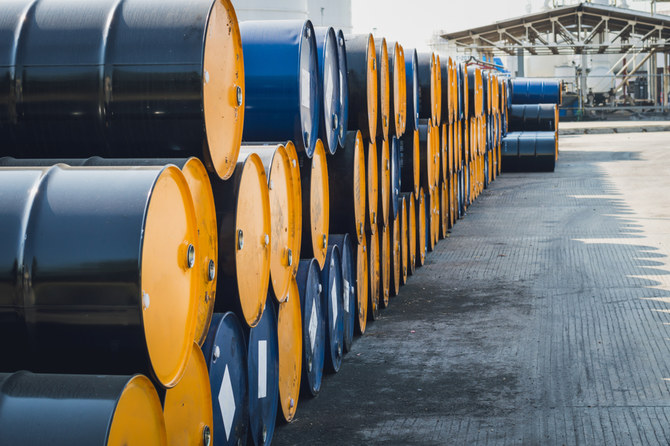
SINGAPORE: Oil prices edged higher on Tuesday after Israel struck Rafah in Gaza, while negotiations for a ceasefire with Hamas continued without resolution, according to Reuters.
Brent crude futures were up 9 cents, or 0.11 percent, at $83.42 per barrel at 9:35 a.m. Saudi time, while US West Texas Intermediate crude futures rose 7 cents, or 0.09 percent, to $78.55 a barrel.
“Oil prices opened up this morning, with some roadblocks in the ceasefire talks between Israel and Hamas leading market participants to price for geopolitical tensions to potentially drag for longer,” said Yeap Jun Rong, market strategist at IG.
Market participants will be looking ahead to upcoming US crude inventories data releases, Yeap added.
US crude oil and product stockpiles were expected to have fallen last week, a preliminary Reuters poll showed on Monday. The crude inventories could have on average fallen by about 1.2 million barrels in the week to May 3, based on analyst forecasts.
During the session, a stronger dollar capped gains in oil futures as it makes crude more expensive for traders holding other currencies. The dollar index, which measures the greenback against six major peers, was last up at 105.25.
Oil prices had settled higher on Monday, partially reversing last week’s declines. Both contracts had posted the steepest weekly losses in three months as the market focused on weak US jobs data and the possible timing of a Federal Reserve interest rate cut.
Palestinian militant group Hamas on Monday agreed to a Gaza ceasefire proposal from mediators, but Israel said the terms did not meet its demands and pressed ahead with strikes in Rafah while planning to continue negotiations on a deal.
Israeli forces struck Rafah on Gaza’s southern edge from the air and ground and ordered residents to leave parts of the city, which has been a refuge for more than 1 million displaced Palestinians.
The absence of a settlement between the parties in the now seven-month long conflict has supported oil prices, as investors worry regional escalation of the war will disrupt Middle Eastern crude supplies.
Saudi Arabia’s move to raise the official selling prices for its crude sold to Asia, Northwest Europe and the Mediterranean in June also supported prices, signalling expectations of strong demand this summer.
The world’s top exporter hiked its flagship Arab Light crude oil price to Asia to $2.90 a barrel above the Oman/Dubai average in June, the highest since January and at the upper end of traders’ expectations in a Reuters survey.
Saudi Aramco’s net profit hits $27.27bn in Q1
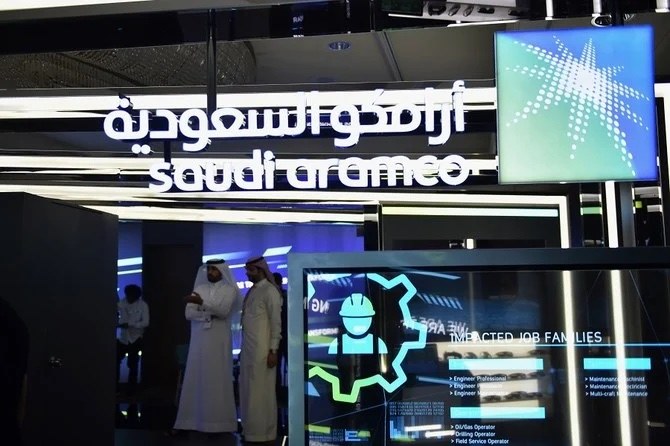
RIYADH: Energy giant Saudi Aramco reported a net profit of $27.27 billion in the first three months of this year, marking a 2.04 percent increase compared to the previous quarter.
According to the company’s statement, the state-owned oil firm’s total revenue for the the three months to the end of March stood at $107.21 billion, with the total operating income for the period reaching $58.88 billion.
Amin Nasser, president and CEO of Saudi Aramco, said: “Our first quarter performance reflects the resilience and strength of Aramco, reinforcing our position as a leading supplier of energy to economies, to industries and to people worldwide.”
However, when compared with the first quarter of the previous year, the net profit of the Tadawul-listed firm declined by 14.44 percent by the end of March 2024.
Despite lower net income, Aramco declared a base dividend of $20.3 billion for the first three months of the year and anticipates distributing its fourth performance-linked dividend of $10.8 billion in the second quarter.
The statement added that the company expects total dividends of $124.3 billion to be declared in 2024, comprising a base dividend of $81.2 billion and a performance-linked dividend of $43.1 billion.
Nasser revealed that Saudi Aramco made significant progress in its gas business during the first quarter.
“We also continue to execute our long-term strategy, and in the first quarter made significant progress on expanding our gas business and growing our globally-integrated downstream value chain, while maintaining our focus on consistently delivering value for our shareholder,” he added.
In February, the energy giant discovered an additional 15 trillion standard cubic feet of gas and 2 billion barrels of condensate in the Kingdom’s Jafurah Field.
Additionally, the statement noted that Saudi Aramco awarded $7.7 billion worth of engineering, procurement, and construction contracts for the expansion of the Fadhili Gas Plant, aiming to increase its processing capacity by 1.5 billion standard cubic feet per day.
Moreover, Aramco completed the acquisition of a 100 percent equity stake in Chilean retailer Esmax in the third quarter of 2023, bolstering the company's downstream expansion efforts.
“Looking ahead, I expect our portfolio to continue to evolve as we aim to contribute to an energy transition that offers solutions to climate challenges, but at the same time recognizes the need for affordable, reliable, and flexible energy supplies,” added Nasser.
The statement further added that Saudi Aramco is well-positioned to help meet the world’s growing need for affordable and reliable energy, emphasizing that oil and gas will continue to play a significant role in the global energy mix.
Additionally, the company noted that it achieved a total hydrocarbon production of 12.4 million barrels of oil equivalent in the first quarter of this year.
Highlighting Aramco’s commitment to sustainability, the energy giant announced its intention to ramp up its utilization of renewable energy sources, aiming to invest in up to 12 gigawatts of solar photovoltaic and wind projects by 2030.
In January, the Sudair Solar PV Plant, one of the largest solar installations in the region boasting a capacity of 1.5 GW, achieved full-capacity operation. This project is a joint venture between Aramco, Saudi Arabia’s sovereign wealth fund, and utility developer ACWA Power.
PIF’s Alat unveils electrification, AI infrastructure business units

RIYADH: Alat, a flagship company of the Public Investment Fund, unveiled two business units in electrification and AI infrastructure, to establish Saudi Arabia as a premier manufacturing hub globally.
The company unveiled its plans during the Milken Institute Conference held in Los Angeles.
According to a press release, the move comes as part of the PIF company’s strategic vision to spearhead a paradigm shift in industry sustainability while propelling Saudi Arabia on the global stage.
Alat Global CEO Amit Midha said: “I am pleased to announce these two exciting new divisions as they will make a significant contribution to Alat’s overall strategic goal of developing an advanced, sustainable future for the industry.”
The electrification arm will fortify grid technology, catering to the burgeoning demand for electricity driven by exponential growth in renewable energy sources like solar, wind, and hydrogen.
By harnessing Saudi Arabia’s solar energy and other clean resources, the firm seeks to manufacture innovative solutions that will catalyze the global energy transition and drive decarbonization in industry.
The electrification unit will specifically focus on enhancing transmission and distribution technologies, facilitating the integration of renewable energy into existing grids, and pioneering advancements in gas and hydrogen generation and compression technologies.
On the other front, the AI Infrastructure business unit will address the escalating global demand for AI capabilities across industries.
This entails the development of cutting-edge technologies encompassing network and communications equipment, servers, data center networking, storage, industrial edge servers, and Industry 4.0 computing.
“The global electrification market size reached $73.64 billion in 2022 and it is expected to hit around $172.9 billion by 2032, growing at a CAGR of 8.91 percent between 2023 and 2032,” the press release added.
The global AI Infrastructure market is set to hit $460.5 billion by 2033, with a robust 28.3 percent compound annual growth rate, driven by widespread adoption across industries for innovation, decision-making enhancement, and task automation.
As a gold sponsor at the Milken Institute Conference, the firm now has nine business units focused on sustainable technology manufacturing.
“Alat will invest $100 billion by 2030 across these business units to develop key partnerships and build advanced manufacturing capabilities in Saudi Arabia to bring jobs and economic diversification to the Kingdom,” the press release said.



